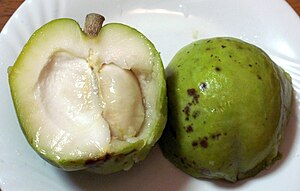
To all the daughters, of any age.
My girlness is triggered. Seeing my daughters grow in femininity is a live matchstick. Woosh! What is this edge and sadness and tears that surprise me; me, the well analyzed adult. Ha!
Where did these thoughts come from, like old dirty socks from the backside of the dryer?
My daughters explore their own free rights as well bodied young women. Then flashes explode in my mind, just as unsolicited as the original whistles and lewd comments were. “Hey! Chicky Chicky!” Kissing sounds smack in the air as the men encroach on my space.
My daughter wears a top just so, and suddenly I am 17 years old. My cousin smirks knowingly. “Are you going out to have some fun?” Later I understood he was convinced that because I looked the way I did, I was having sex with multiple partners.
My daughters pick up on my inconsistencies when I warn them. My somewhat frantic words seem over the top and suppressive. They don’t hear my mom calling me an 8-year old hooker when I walk around the house in underwear. Apparently I was too old. The calendar page had turned and I didn’t notice. Time to wear full attire if my brothers and father were home. It was apparently also time to move my best friend out of my room. I was left alone, listening to the newly roommated brothers on the other side of our shared wall talking and laughing together into the night.
What is this arbitrary line I didn’t see? And how do I explain it and warn my daughters? I’d like to wrap them up in caution tape. “Please be careful my daughters. I love you. Please don’t get hurt.”
It felt like everything reinforced my own vulnerability to that line. “You are not safe,” the line read. “You are not equal.” And I can’t even tell you what it was like becoming a woman in medicine. As I walked along through life, the line progressed too, defining me. “You are just just a woman.”
I have worked so hard to smudge this line throughout my life. So hard. I thought it was as close to a nonissue as it could be while still having a vagina and breasts. This must be why it has been such a surprise when these visceral reactions to my daughters’ development jump up, like turning the crank on the jack in the box. Spring! Cue scary clown in my face. Probably my mother had her own jumping thoughts when she parented me just so.
I’m sorry, Mom, for judging you.
My daughters deserve to figure this out for themselves without my sleeping-thorns waking up all over them. They will do well. My fear will or will not continue to heal. But I pray that either way, I don’t use it against them. And I pray that my fear doesn’t ironically distance us from each other.
If I were a wizard, I would twitch my nose, chant a marvelous Latin spell, and they would gain the ability to proceed with both the guilelessness and the smarts that would keep them from harm and still give them freedom. But the only magic I have is this clumsy love.
The differences are real. The double standard is not arbitrary. I misspoke earlier.
Getting accepted to medical school with the many family and friends’ opinions dropping around me like stinky flower petals – “She’s her father’s daughter. That’s why.” A patient mid interview aggressively grabbing me. The failure of messy hair and weight gain. Being passed over for a directorship.
And then there are all the wonderful realities of being girl…. Many.
I will stand with you, daughters of mine. I will come when you call. I will shake my fist when you are shattered. I will work on my own self care. I will choose, and choose again, to not trip you. And when you mess up, I will still want you. Every time.
Self-care tip: Work on your own self-care in order to love your loved ones well. Keep on!
Questions: How have you found that the condition of your health – emotional, physical, spiritual – has given you more to give to the ones you love?

















